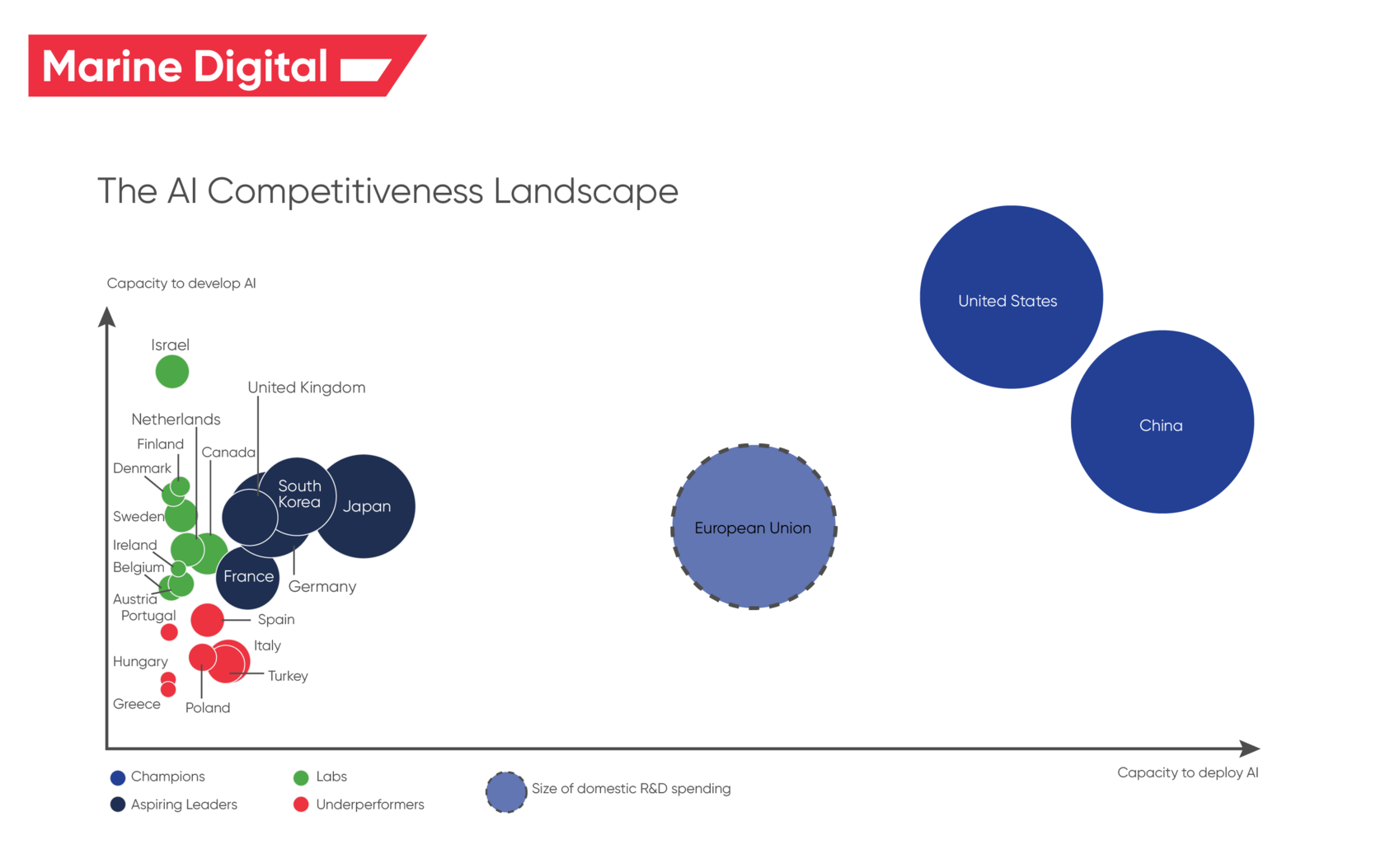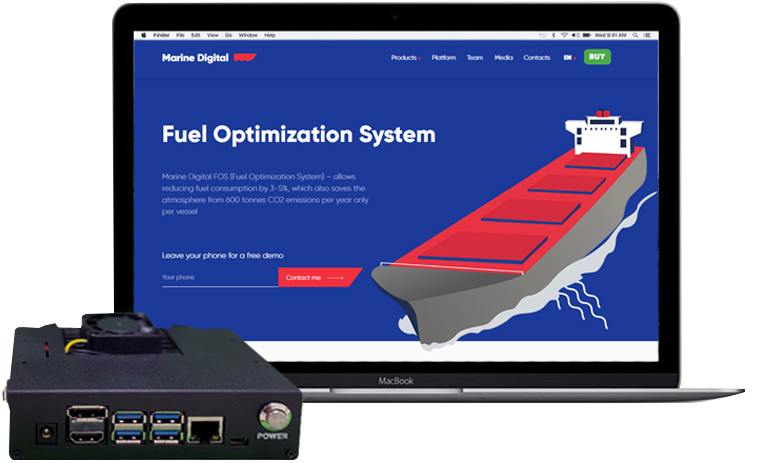
The European Union (EU) is lagging behind China and the United States in the field of Machine learning (ML) / Artificial intelligence (AI) and this is not just a general opinion, but a concrete fact. Thierry Breton, the European Commissioner for Internal Market, recently admitted that the European Union missed the first wave of AI, during which AI was used primarily in consumer applications such as search engines and speech recognition. In the coming second wave, industrial applications of AI, such as predictive maintenance and quality control based on image recognition, will spread throughout the global economy.
The European Commission recently unveiled its ambitious plans in a document titled “Shaping Europe's Digital Future: Strategies for Data and Artificial Intelligence,” politicians and leaders alike believe the EU will not catch up with the world's leaders in artificial intelligence anytime soon. Two years ago, former president of Google China, venture capitalist, and AI expert Kai-fu Lee stated that Europe does not even claim a bronze medal in the global race for AI.

Champions. China and the United States have developed tremendous innovation potential and have succeeded in using ML/AI to improve productivity. They are far ahead of all other countries in the world.
Honest leaders. France, Germany, Japan, South Korea, and the United Kingdom have reached the threshold of innovation capability, and thanks to large domestic industries, they also have an AI-ready market. It is important to note that if we treated the EU as a single country and assessed the aggregate potential of all member countries, it would be closer to the champions in terms of ML/AI competitiveness.
To catch up with world leaders, EU economies must follow a path that reflects their current competitive position. There is a huge potential for the development and deployment of artificial intelligence technologies in the EU as it has a large number of world-class global companies that are industry leaders. Realizing this potential, however, requires far-reaching policy reforms that will enable EU industry players to use ML/AI on a large scale in their operations.
What measures does the EU need to take now to gain a foothold in the technology race?
First of all, does the country have the ability to develop AI. There are several factors in determining a country's capabilities, including the availability of the right talent on the ground and the availability of private sector and government funding for startups.
The second aspect is whether the country has the ability to deploy AI, namely whether companies that develop AI applications can commercialize and deploy them on a large scale in local industries. These companies will need ML/AI-ready market access, massive local data to train the algorithms so that they can be used effectively, and sufficient infrastructure and computing power.
The laggards must improve their fundamental capabilities, such as talent and funding, to support business innovation. Without these capabilities, it will be difficult for them to develop industrial AI applications.
Aspiring leaders must forge global partnerships to accelerate the application of their technology to business. These countries face a major challenge: when companies around the world seek partnerships, digital maturity companies from China and the United States are usually the most attractive options. This is because innovation is only one criterion. Equally important is the ability of companies to use ML/AI on a large scale, as demonstrated by companies in China.
While the EU also has a well-developed innovation capacity, China has moved forward in the development and deployment of artificial intelligence technologies due to the country's ability to encourage its companies to adopt artificial intelligence technologies. In fact, China has become the champion because it meets all the requirements for large-scale deployment of AI applications.
By comparison, the EU is struggling to successfully commercialize AI on a large scale. The market is very fragmented, although the unified EU market could be potentially large. Since existing political incentives encourage national ecosystems, they lead to the creation of sub-level national monopolies rather than the creation of potential EU champions.
Moreover, EU companies and industries are not ready for AI. In terms of digitization, they are inferior to Chinese and American ones. One of the reasons is the lack of direct involvement of digital ecosystems. EU companies still have a long way to go before they are ready to use AI at scale.
Access to data also remains fragmented in the EU, and although linguistic differences play a role, they can be overcome. The revised Public Sector Information Directive and the recently unveiled European Strategy for Data will go a long way towards ensuring the exchange of data between governments and companies, but much more needs to be done in this area.
Finally, the EU's computing base is not as strong as China's. Most of the world's quantum computing companies, cloud service providers and chip manufacturers are based not in EU member states.
EU companies will have to work with foreign corporations, not only because it is necessary, but also because it will prove to be mutually beneficial.
An example of a European AI / ML startup

We at Marine Digital, headquartered in Luebeck, Germany, develop specific systems for the marine industry based on AI / ML. Such systems are in demand by shipping companies to monitor vessel performance, optimize vessel fuel consumption, reduce harmful emissions, etc. Our main goal is to simplify the use of Machine Learning algorithms in the maritime industry, so that any shipping company, not only in the EU, but also in the world can experience the benefits of using these technologies. We develop not only software, but also hardware, and solving at the same time the problems of scalability and access to data, including telemitry from the ship, Big Data analytics and also provide all the necessary requirements for cyber security in shipping!












